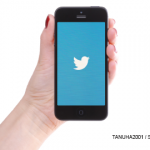The absence of a face-to-face relationship may also create a false sense of anonymity, and this misapprehension has led to many abuses and misuses of social media by healthcare professionals and medical students.5 Patients may feel they can obtain medical advice from their physicians through social media, when in fact, their physicians may not be legally able, or willing, to give advice online without seeing them in person. On the other hand, if a physician sees a patient abusing alcohol on social media, how much of this information should be used to make management decisions, such as starting methotrexate?
Physicians are discouraged from providing care to their own family members and friends.6 The American College of Physicians Ethics Manual states: “Physicians should usually not enter into the dual relationship of physician–family member or physician–friend for a variety of reasons. The patient may be at risk of receiving inferior care from the physician. Problems may include effects on clinical objectivity, inadequate history-taking or physical examination, over-testing, inappropriate prescribing, incomplete counseling on sensitive issues, or failure to keep appropriate medical records.”4
Becoming friends with a patient on social media may lead to a deeper interpersonal relationship, one that may blur the boundaries of the patient–physician relationship.
Professional organizations have developed a few guidelines for interacting with patients on social media. The American Medical Association’s policy, for example, advises physicians to establish “appropriate boundaries” in their relationships with their patients.7 It further advises against publishing any confidential health information online and making sure that professional content is kept separate from personal content on social media platforms.
The Journal of Medical Ethics goes even further: It advises against accepting any friend requests from patients and against sending friend requests to patients.8 Physicians who are worried that they may damage the patient–physician relationship by rejecting a patient’s friend request should have a face-to-face conversation with the patient, explaining the ethical problems of an online social relationship.
Preserving the Relationship
At the next follow-up appointment, I explained to my patient that I had not yet created a professional Facebook account, and that I would notify him once I established that account. I also discussed other online patient resources on social media networks, such as #RheumChat, #Creakyjoints, #PatientsLikeMe and my own professional Twitter account. He gratefully accepted the information, and we continued our scheduled office visit.
Isabelle Amigues, MD, is a clinical fellow in the Division of Rheumatology at Columbia University College of Physicians and Surgeons, and New York Presbyterian Hospital, New York. Follow her on Twitter: @isa75012.


